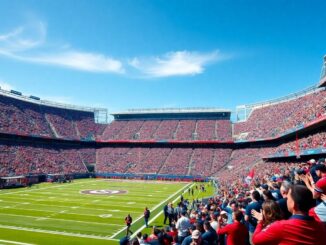Examining Wayne Rooney's coaching trajectory and his potential move to Macclesfield FC offers insights into the highs and lows of football management.

Topics covered
The world of football management can feel like a rollercoaster, and if you’re following Wayne Rooney’s recent journey, you know what I mean. Just months after leaving Plymouth Argyle, he’s now being eyed for the head coach role at Macclesfield, a non-league club.
But what does this mean for a player with such an impressive background? And more importantly, what can we learn from his experiences so far?
Understanding the managerial landscape
Rooney’s stint in management has been anything but straightforward. His time at Plymouth Argyle was a tough gig; he managed just five wins in 25 matches, leaving the team floundering at the bottom of the Championship.
These aren’t just numbers—they paint a vivid picture of the harsh realities many aspiring managers face when making the leap from player to coach. In the world of sports management, the churn rate is high, and the pressure to deliver results can be relentless.
After leaving Plymouth, Rooney took a step back as a pundit, gaining a fresh perspective on the game. But now, with the potential coaching role at Macclesfield on the table, we have to ask: is he ready for this challenge? The crucial question is whether Rooney’s experience and style align with what Macclesfield needs to thrive.
Lessons from past experiences
To assess Rooney’s fit at Macclesfield, it’s essential to look at his previous management roles. At D.C. United and Derby County, he had some promising moments, but ultimately, results were mixed. His time at Birmingham was particularly tough, with nine defeats in just 15 games. These experiences highlight a vital truth: moving into management isn’t simply about a stellar playing career; it demands a solid grasp of tactics, player management, and the ability to motivate a team.
Let’s not overlook the emotional toll that comes with being a manager. During his time at Plymouth, Rooney faced significant personal challenges, including long stretches away from his family, which undoubtedly affected his focus and performance. Balancing professional responsibilities with personal life is crucial for success in this field. A move to Macclesfield might offer him a more manageable situation, keeping him closer to home.
The future of Macclesfield FC and Rooney
Macclesfield is emerging from a challenging past, having recently reformed after liquidation. This could be a fresh start for Rooney, giving him the chance to carve out a managerial identity. The club’s recent promotion to the National League North, following a standout performance in the Northern Premier League, brings excitement but also pressure. The sustainability of their success will depend on effective leadership. If Rooney takes charge, he’ll need to focus on building a resilient team that can hold its own at this new level.
One pressing question lingers: can Rooney adapt his managerial style to inspire and develop players in a non-league setting? The pressure for immediate results could be intense, but with the right approach, it might allow him the space to grow into this role away from the high-stakes spotlight of top leagues. Understanding the metrics of success—like player development and community engagement—will be key for both Rooney and Macclesfield.
Key takeaways for aspiring managers
Rooney’s journey is packed with lessons for those looking to step into football management. First off, remember that success in management isn’t just about past glories as a player; it requires a different skill set altogether. Secondly, be ready for the emotional and professional hurdles that come your way; resilience is essential. And finally, don’t underestimate the importance of maintaining a balance between family life and work, especially in a high-pressure environment.
In conclusion, whether Rooney ultimately lands the role at Macclesfield or not, his experiences serve as a valuable guide to navigating the complexities of football management. With a clear strategy and a focus on sustainable growth, both he and the club could chart a promising future together.




